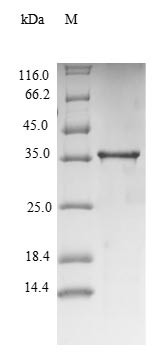Cookie preferences
This website uses cookies, which are necessary for the technical operation of the website and are always set. Other cookies, which increase the comfort when using this website, are used for direct advertising or to facilitate interaction with other websites and social networks, are only set with your consent.
Configuration
Technically required
These cookies are necessary for the basic functions of the shop.
"Allow all cookies" cookie
"Decline all cookies" cookie
CSRF token
Cookie preferences
Currency change
Customer-specific caching
FACT-Finder tracking
Individual prices
Selected shop
Session
Comfort functions
These cookies are used to make the shopping experience even more appealing, for example for the recognition of the visitor.
Note
Show the facebook fanpage in the right blod sidebar
Statistics & Tracking
Affiliate program
Conversion and usertracking via Google Tag Manager
Track device being used

NEW
If you have any questions, please use our Contact Form.
You can also order by e-mail: info@biomol.com
Larger quantity required? Request bulk
You can also order by e-mail: info@biomol.com
Larger quantity required? Request bulk
Organism: Mus musculus (Mouse). Source: E.coli. Expression Region: 57-235aa. Protein Length:... more
Product information "Tumor necrosis factor (Tnf), partial, mouse, recombinant"
Organism: Mus musculus (Mouse). Source: E.coli. Expression Region: 57-235aa. Protein Length: Extracellular Domain. Tag Info: N-terminal 6xHis-SUMO-tagged. Target Protein Sequence: GPQRDEKFPN GLPLISSMAQ TLTLRSSSQN SSDKPVAHVV ANHQVEEQLE WLSQRANALL ANGMDLKDNQ LVVPADGLYL VYSQVLFKGQ GCPDYVLLTH TVSRFAISYQ EKVNLLSAVK SPCPKDTPEG AELKPWYEPI YLGGVFQLEK GDQLSAEVNL PKYLDFAESG QVYFGVIAL. Purity: Greater than 90% as determined by SDS-PAGE. Endotoxin: Not test. Biological Activity: n/a. Form: Liquid or Lyophilized powder. Buffer: If the delivery form is liquid, the default storage buffer is Tris/PBS-based buffer, 5%-50% glycerol. If the delivery form is lyophilized powder, the buffer before lyophilization is Tris/PBS-based buffer, 6% Trehalose, pH 8.0. Reconstitution: We recommend that this vial be briefly centrifuged prior to opening to bring the contents to the bottom. Please reconstitute protein in deionized sterile water to a concentration of 0.1-1.0 mg/mL.We recommend to add 5-50% of glycerol (final concentration) and aliquot for long-term storage at -20 °C/-80 °C. Our default final concentration of glycerol is 50%. Customers could use it as reference. Storage: The shelf life is related to many factors, storage state, buffer ingredients, storage temperature and the stability of the protein itself. Generally, the shelf life of liquid form is 6 months at -20 °C/-80 °C. The shelf life of lyophilized form is 12 months at -20 °C/-80 °C. Notes: Repeated freezing and thawing is not recommended. Store working aliquots at 4 °C for up to one week. Relevance: Cytokine that binds to TNFRSF1A/TNFR1 and TNFRSF1B/TNFBR. It is mainly secreted by macrophages and can induce cell death of certain tumor cell lines. It is potent pyrogen causing fever by direct action or by stimulation of interleukin-1 secretion and is implicated in the induction of cachexia, Under certain conditions it can stimulate cell proliferation and induce cell differentiation. The TNF intracellular domain (ICD) form induces IL12 production in dendritic cells. Reference: "Cloning and expression in Escherichia coli of the gene for mouse tumor necrosis factor."Shirai T., Shimizu N., Shiojiri S., Horiguchi S., Ito H.DNA 7:193-201(1988). Function: Cytokine that binds to TNFRSF1A/TNFR1 and TNFRSF1B/TNFBR. It is mainly secreted by macrophages and can induce cell death of certain tumor cell lines. It is potent pyrogen causing fever by direct action or by stimulation of interleukin-1 secretion and is implicated in the induction of cachexia, Under certain conditions it can stimulate cell proliferation and induce cell differentiation., FUNCTION
| Keywords: | Tnf, Tnfa, Recombinant Mouse Tumor necrosis factor (Tnf), partial |
| Supplier: | Cusabio |
| Supplier-Nr: | EP023955MO1 |
Properties
| Application: | Activity not tested |
| Conjugate: | No |
| Host: | E.coli |
| Species reactivity: | mouse |
| MW: | 35.7 kD |
| Purity: | >90% (SDS-PAGE) |
Database Information
| KEGG ID : | K03156 | Matching products |
| UniProt ID : | P06804 | Matching products |
| Gene ID | GeneID 21926 | Matching products |
Handling & Safety
| Storage: | -20°C |
| Shipping: | +4°C (International: +4°C) |
Caution
Our products are for laboratory research use only: Not for administration to humans!
Our products are for laboratory research use only: Not for administration to humans!
You will get a certificate here
Viewed


